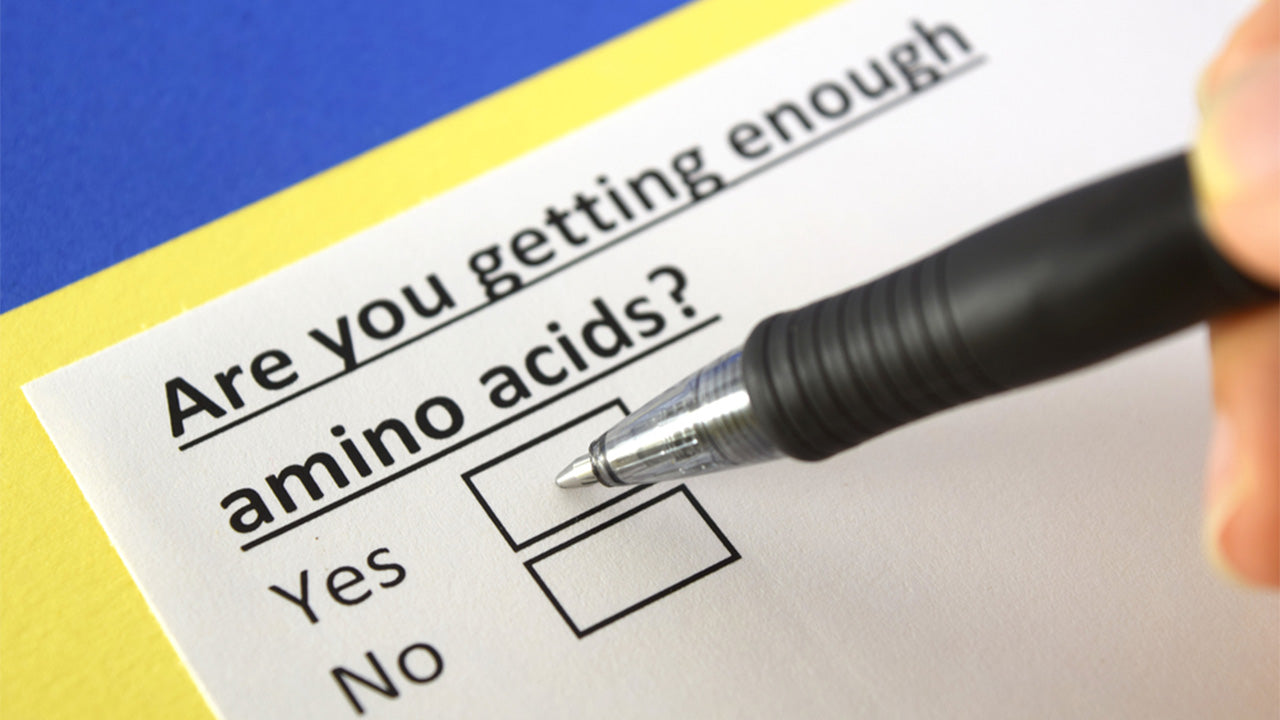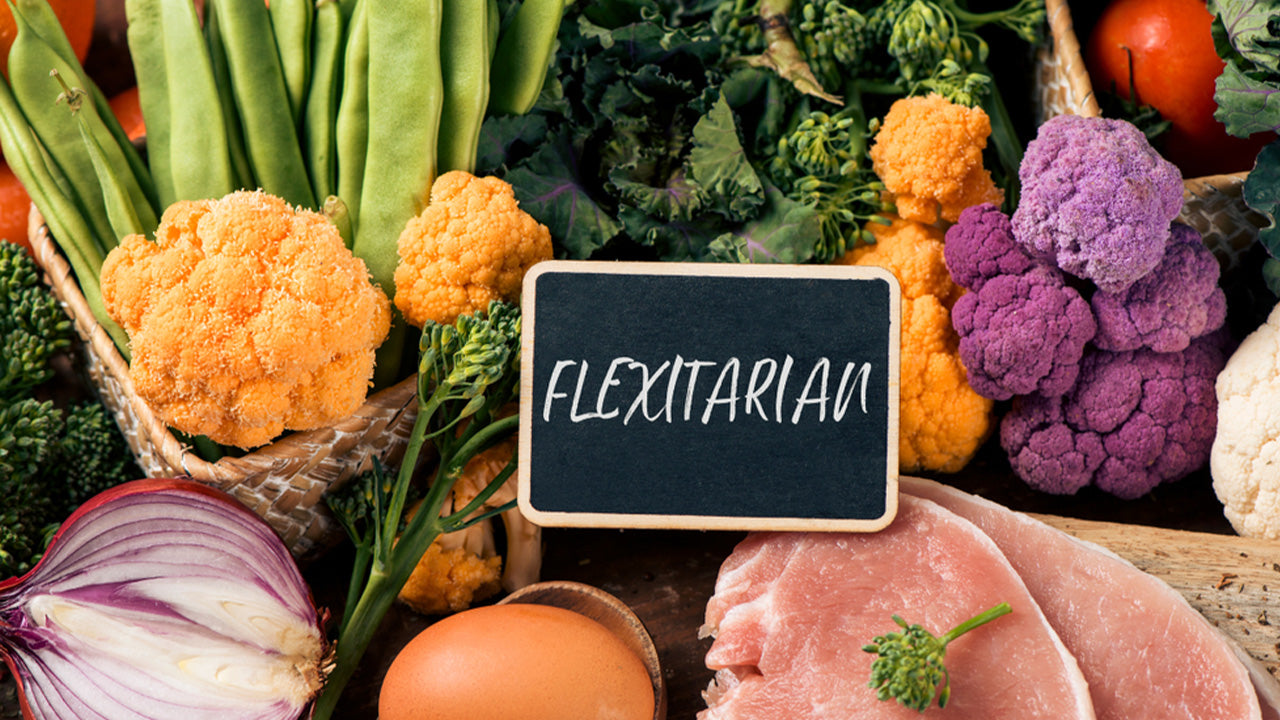MIND Diet Pros and Cons (Plus a Sample Meal Plan)
 By: by Amino Science
By: by Amino Science

What happens when you take all the brain-boosting foods of the Mediterranean diet and combine them with all the brain-boosting foods of the DASH diet? You get the MIND diet, developed in 2015 by researchers at Rush University Medical Center. If you’re looking for a healthy eating plan that will help keep your brain sharp, then the MIND diet is our top recommendation. Let’s discuss MIND diet pros and cons. And be sure to check out our MIND diet meal plan, which has you covered with a week’s full of MIND diet recipes.
MIND Diet Pros
The MIND diet is a hybrid of the two best diets of the last couple of decades: the Mediterranean diet and the DASH diet, which stands for Dietary Approaches to Stop Hypertension. With an emphasis on whole foods and the avoidance of processed foods, both of these diets have been shown to help lower high blood pressure, promote weight loss, reduce inflammation, and lower the risk of heart disease, stroke, diabetes, and osteoporosis.
The Mediterranean and Dash diets have also been proven to slow the loss of brain function, but neither diet puts the main focus on brain health. So Martha Clare Morris, a nutritional epidemiologist and director of the MIND Center for Brain Health at Rush University Medical Center, and colleagues designed the Mediterranean-DASH Intervention for Neurodegenerative Delay (MIND) diet to see how effectively it could slow age-related cognitive decline. The results so far have been impressive.
The MIND Diet Preserves Brain Function
Researchers believe the MIND diet preserves brain function by reducing the oxidative stress and inflammation that damages brain cells.
They examined cognitive function over an average of 4.7 years in 960 participants of the Memory and Aging Project. Those who followed the MIND diet the closest slowed brain aging by 7.5 years compared to participants who did not adhere to the MIND diet (1).
The MIND Diet Lowers the Risk of Alzheimer’s Disease
In another study, older adults (58-98 years old) who adhered to the MIND diet had a 53% lower risk of Alzheimer’s than participants who did not stick closely to the diet. Strict adherence, however, isn’t necessary to see benefit. Even those who moderately followed the diet slashed their risk of Alzheimer’s by 35% on average (2).
It appears that the MIND diet helps protect against Alzheimer’s disease by discouraging the formation of beta-amyloid proteins that accumulate in the brain and are thought to be a primary driver of the neurodegenerative condition.
MIND Diet Cons
There are many health benefits of the MIND diet: brain health, heart health, weight loss, and diabetes management to name a few, but there are also some potential pitfalls to be aware of.
The diet is not a lifestyle, and so doesn’t emphasize the importance of physical activity. We’re here to remind you that it’s important to exercise for the health of your brain and your body.
The MIND diet isn’t too restrictive, which is a plus, but the broad guidelines can leave a little too much wiggle room for cheating and experimentation. That’s where a meal plan can come in handy (see our sample menu below).
As you review the list of foods to eat and foods to avoid in the next section, you’ll notice that the MIND diet excludes high-protein foods such as red meat and cheese, which can cause a dip in protein intake. And protein is one nutrient your brain simply cannot do without. Proteins feed your brain cells vital nutrients and help balance and regulate brain function, including your mood.
But don’t worry, we have a MIND diet workaround! Our Active Aging blend of essential amino acids (the very building blocks of protein) is formulated to help you maintain brain function, muscle mass and strength, and heart health as you age. That’s why we’ve included this daily protein supplement in our MIND diet meal plan, to make sure you’re covered on all nutrient fronts.
You can learn more about our Active Aging protein supplement here, but first let’s get you started on the MIND diet.
MIND Diet Foods to Eat
Bust out your shopping list, because here are the foods you’ll want to be foraging for this week.
- Berries (eat at least 2 times a week): Take your pick of blueberries, raspberries, strawberries, and blackberries, which have been found to slow brain decline in aging adults. A study conducted over 20 years and made up of over 16,000 people showed that those who ate the most berries had the slowest loss of brain function.
- Green leafy vegetables (eat at least 6 times a week): The MIND diet puts the emphasis on leafy greens like collard greens, kale, and spinach, which are full of brain-saving vitamin E, folate, carotenoids, and flavonoids.
- All other vegetables (at least 1 time a day): You won’t have to miss out on your favorite colorful veggies, but the MIND diet creators do recommend eating more of the non-starchy and lower calorie options.
- Nuts (at least 5 times a week): Nuts are high in vitamin E and anti-inflammatory omega-3 fatty acids. Stock up on roasted, raw, and unsalted nuts, including almonds, walnuts, pecans, and macadamia nuts.
- Olive oil: Taking its cue from the Mediterranean diet, the MIND diet encourages using olive oil for all your cooking needs, and your dressing needs too. Oleic acid is the predominant healthy fat in olive oil, and bestows heart and anti-cancer benefits.
- Whole grains (at least 3 times a day): Oatmeal, brown rice, whole wheat bread and pasta, and quinoa all count toward your whole grain intake, which should come in at 3 servings of whole grains minimum a day.
- Fish (at least 1 time a week): Heart-healthy omega-3s in fatty fish like salmon, trout, tuna, mackerel, and sardines lower inflammation in the brain and protect against cognitive decline.
- Beans (4 times a week): Don’t feel you need to limit bean consumption. Have at it with lentils, soybeans, navy beans, and any other beans you enjoy.
- Poultry (at least 2 times a week): Stay away from fried chicken but enjoy baked, grilled, or ground chicken and turkey.
- Wine (no more than 1 glass a day): Although the Mediterranean diet is well known for the liberal intake of red wine which contains the antioxidant resveratrol, the MIND diet gives a daily allowance for a glass of wine, red or white, a day.
You can support your brain-boosting diet by taking a daily MIND diet-approved essential amino acid supplement.
MIND Diet Foods to Avoid
Brace yourself: here are the foods to avoid or limit when following a MIND diet and boosting brain health. What do these unhealthy foods have in common? They are rich in saturated and trans fats!
- Butter and margarine (less than 1 tablespoon a day): Limit your intake to 14 grams a day of butter, which is a little less than 1 tablespoon. Instead use olive oil for cooking. As for buttering your bread, well, olive oil mixed with balsamic vinegar makes for a great bread dipper.
- Red meat (no more than 3 times a week): High in saturated fat, red meat, that includes pork, beef, lamb and their products, should be eaten sparingly with the maximum set at 3 servings a week.
- Fried food (no more than 1 time a week): If you’re a fan of fried, then splurge once a week. What will it be? Fried calamari or some fried onion rings?
- Sweets and pastries (no more than 4 times a week): The MIND diet allows for 4 servings of sweets a week, which is a more generous allowance than many other diets that call for a drastic slash in sugar.
It goes without saying that any diet plan that focuses on brain health nixes fast food and processed foods...basically anything packaged, boxed, or canned.
A MIND Diet Weekly Meal Plan
Get started on your MIND diet using the following eating plan as a guide. We’ve got a mix of brain healthy foods from all the different food groups to help optimize your overall health.


Up to 25% off Amino
Shop NowTAGS: diet plans
Join the Community
Comments (0)
Most Craveable Recipes




 833-264-6620
833-264-6620



















